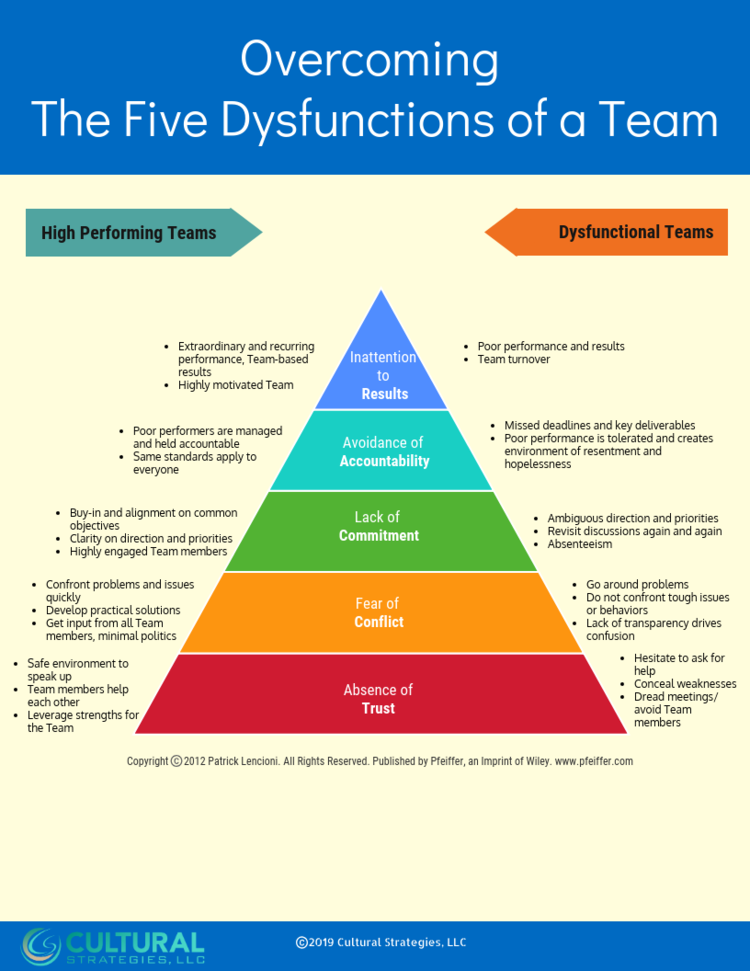Teams are the backbone of many organizations, but they can also be a source of conflict and inefficiency. Patrick Lencioni’s “The Five Dysfunctions of a Team” outlines the common challenges that teams face and provides a roadmap for overcoming them.
The five dysfunctions are:
- Absence of Trust
- Fear of Conflict
- Lack of Commitment
- Avoidance of Accountability
- Inattention to Results
Let’s explore each of these dysfunctions and how they can be overcome:
- Absence of Trust: Teams that lack trust are plagued by politics, defensiveness, and personal agendas. Team members need to be vulnerable and open with each other to build trust. Encourage transparency, open communication, and shared experiences to build trust and create a safe environment for all team members.
- Fear of Conflict: Teams that fear conflict often avoid tough conversations and make decisions without fully exploring all the options. Encourage healthy conflict and encourage team members to express their opinions and ideas respectfully.
- Lack of Commitment: Teams that lack commitment often struggles to make decisions and move forward as a unit. To build commitment, team members must be aligned on their goals and objectives and have a shared understanding of their roles and responsibilities.
- Avoidance of Accountability: Teams that avoid accountability often struggle with follow-through and execution. To build accountability, establish clear expectations and hold team members responsible for meeting them. Celebrate successes and acknowledge failures as opportunities for growth and improvement.
- Inattention to Results: Teams that are inattentive to results often lack a shared focus and are more concerned with individual priorities. To build a results-focused team, establish clear goals and objectives and align the team around them. Celebrate successes and learn from failures to continuously improve.
By addressing these five dysfunctions, teams can build stronger relationships, overcome challenges, and achieve greater success. With the right focus and effort, teams can become a source of strength and resilience and drive their organizations to new levels of success.
